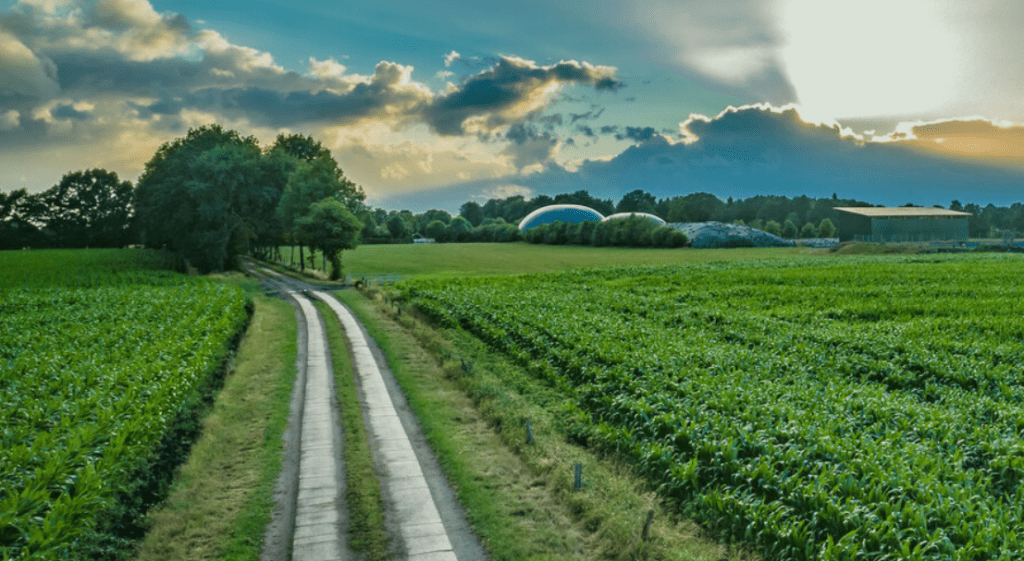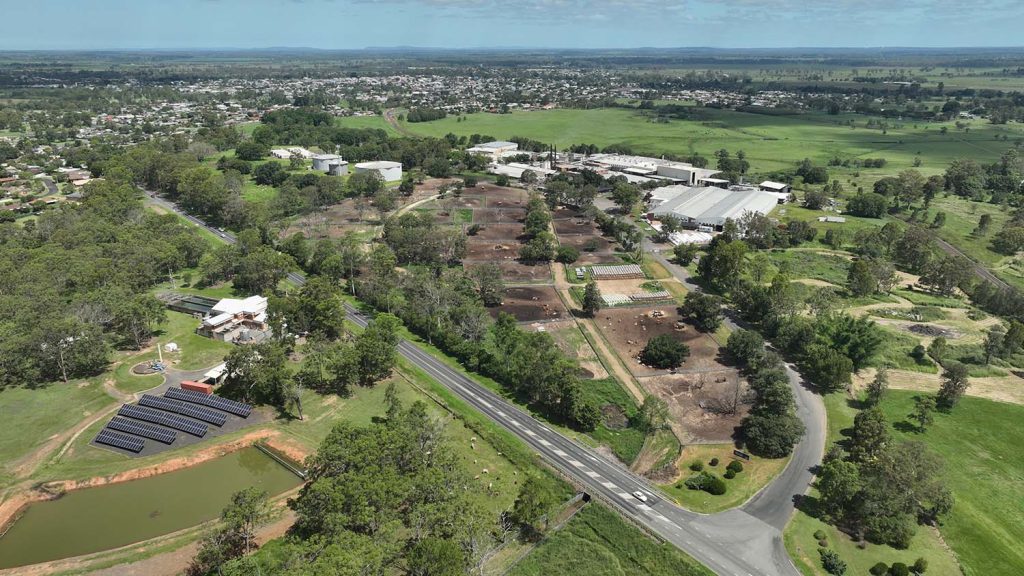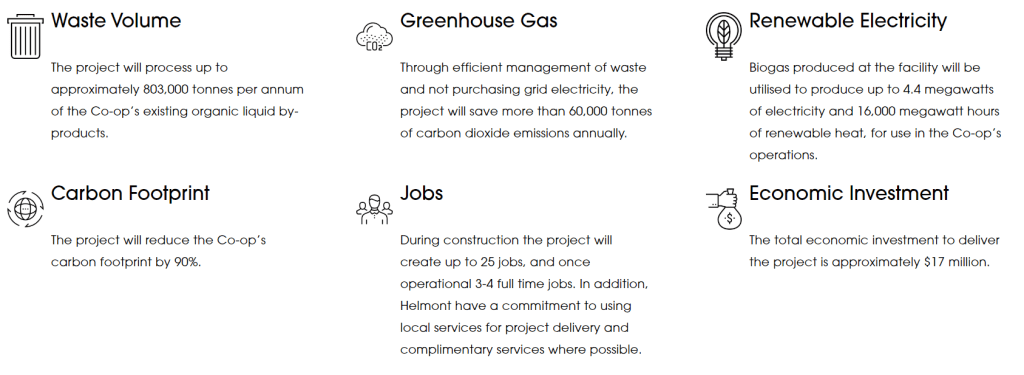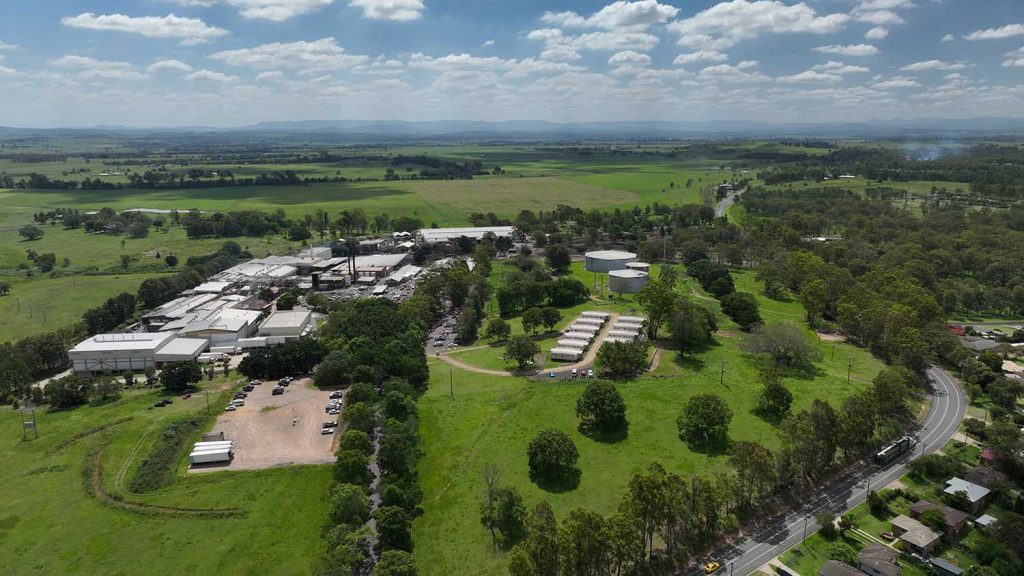
Susanna Freymark
In years to come Casino could be known not only for its beef industry but for its innovation and sustainability.
Visitors may still come to tour the Casino Food Co-op abattoir and packaging centre but there is likely to be great interest in seeing the workings of the biohub next door that creates energy from the nutrient-rich waste at the Co-op site.
The Co-op’s sustainability and innovation group manager Trevor Moore said the biohub is the way of the future.
The proposed site for the Casino Biohub built by Helmont Energy is next to the Casino Food Co-op.
The Co-op has been working on the biohub and other projects since 2017.

While Mr Moore is dealing with regulatory framework for approval with a long lead time he anticipates 2025 as the operational date for a biohub at Casino.
“We produce nutrient-rich waste from processing – this is a mix of processing byproducts such as grass and feed ruminants,” Mr Moore said.
This waste product from the abattoir will be turned into nutrient-rich fertiliser and will be used to create energy that will meet 40–50% of the energy use of the Co-op on a daily basis.
“It’s a great opportunity for local businesses to be part of a sustainable operation. Part of the challenge is to convince regulatory bodies to accept third party organics such as Norco waste and put it in the biohub without risk,” he said.
Other energy sources such as the biowaste from local businesses, food and organics waste have the potential to fuel the biohub. This fuel then presents an opportunity for the 500 farmers who own the Co-op to use this liquid fertiliser and extend pasture growth, Mr Moore said.
“It is a true circular system.”

The project will reduce the Co-op’s carbon footprint by 90%.
Mr Moore explains simply how the biohub will work and what it will do with the waste from the Co-op.
“The biohub works by capturing the gases generated from the natural breakdown of the organic matter and using these gases to generate energy.
The leftover material is called the digestate; this is a nutrient dense material that can be utilised as fertiliser, demonstrating the cyclic nature of the project, he said.
The biohub is part of a bigger picture – the Regional Jobs Precinct (RJP) across three industrial sites in Casino.
Research for the business case for the biohub was funded in 2023 by the Department of Regional NSW Government.

The aim of the RJP is to create jobs and growth in country areas. The State Government has funded five RJPs in NSW.
The biohub in Casino will create some technical jobs to support its operations.
The bigger sustainability picture including research opportunities, renewable energies, engagement with Southern Cross University and Tafe for upskilling and work are all in the future, Mr Moore said.
During construction, the biohub will create up to 25 jobs and once operational sustain 3-4 fulltime positions.
The RJP report is on public exhibition until March 24.
You can read the full report here.



